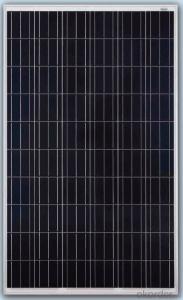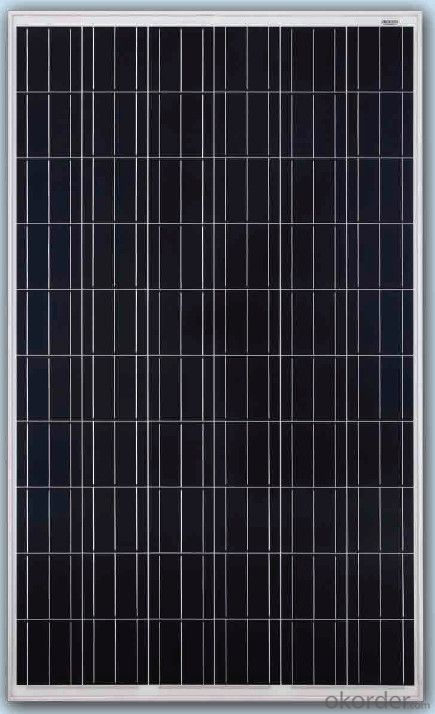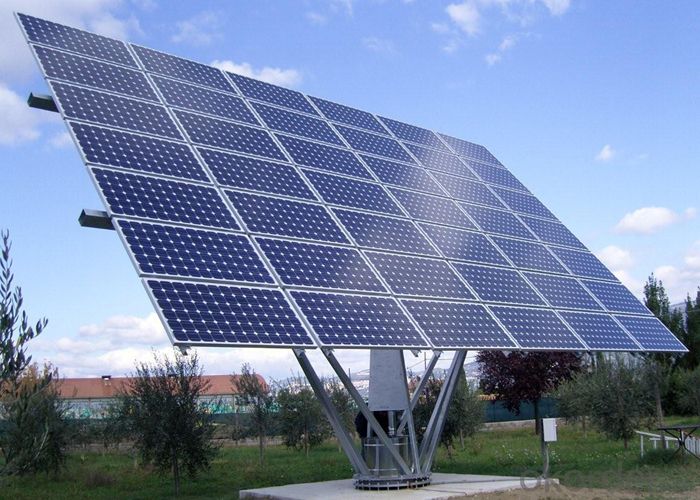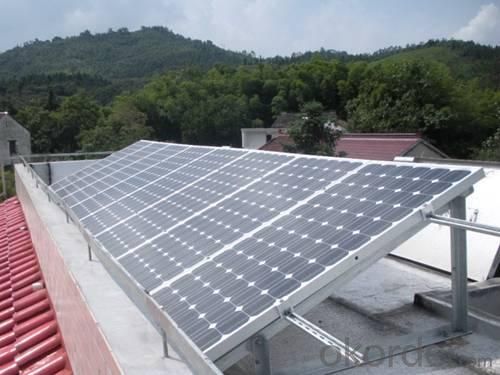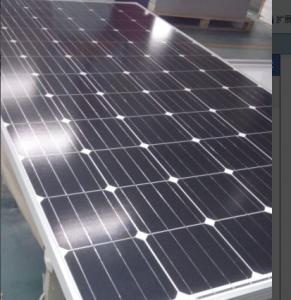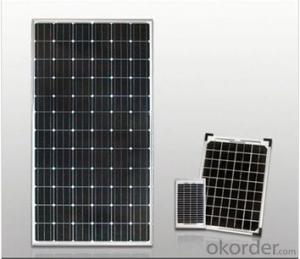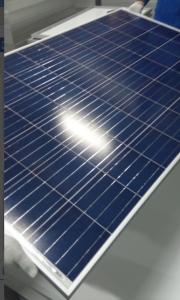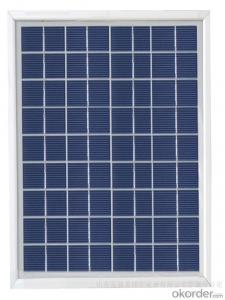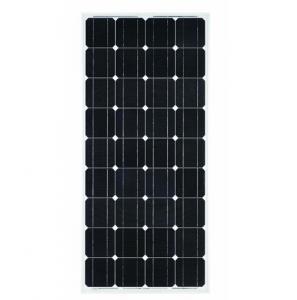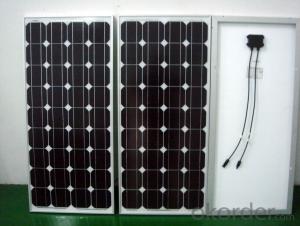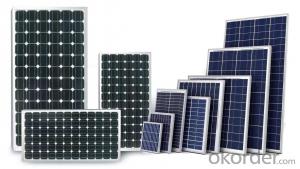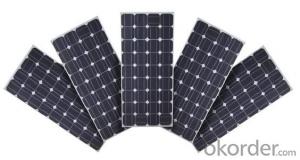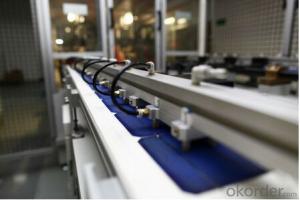Buy Your Own 140w/145w Solar Panels with TUV IEC MCS CEC IDCOL SONCAP Certificates
- Loading Port:
- Shanghai
- Payment Terms:
- TT OR LC
- Min Order Qty:
- 1000 watt
- Supply Capability:
- 100000000 watt/month
OKorder Service Pledge
OKorder Financial Service
You Might Also Like
- TUV IEC, MCS (UK), CE, CEC (Australia), INMETRO, IDCOL, SONCAP CERTIFIED
- [EU ANTIDUMPING DUTY-FREE]
- PROFESSIONAL SOLAR PANEL MANUFACTURER SINCE 2004
FEATURES
`Long Service Life
`High Efficency Solar Cells
`Special Aluminum Frame Design
`High Transmission,Low Iron Tempered Glass
`Advanced Cell Encapsulation
APPLICATIONS
`Solar power stations
`Rural electrification, Small home power systems
`Power supply for traffic, security, gas industry
`12V and 24V battery charging system
`Other industrial and commercial applications
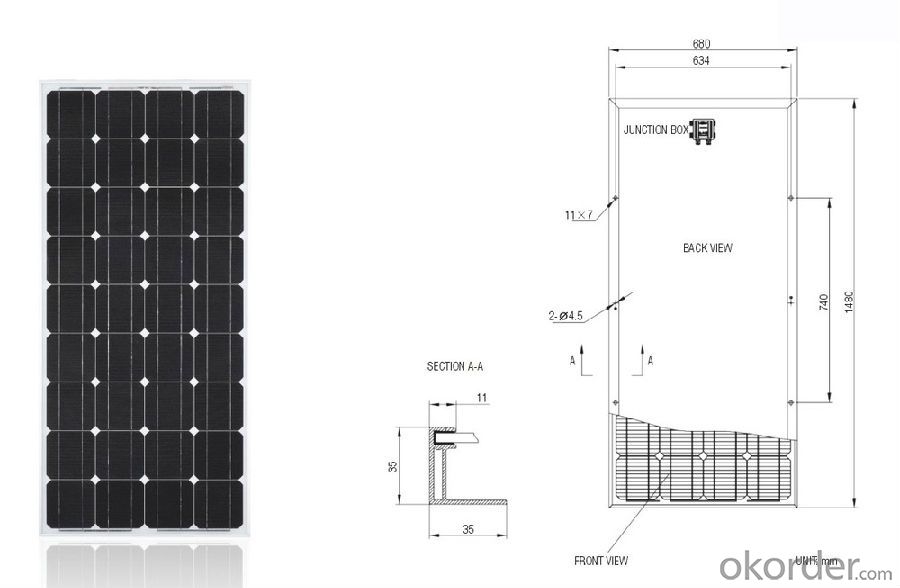
ELECTRICAL CHARACTERISTICS | ||||||
Model Number | KM130(6) | KM135(6) | KM140(6) | KM145(6) | KM150(6) | |
Maximum Power as per STC | Pmax(W) | 130 | 135 | 140 | 145 | 150 |
Power Tolerance | % | ±3% | ||||
Maximum Power Voltage | Vm(V) | 17.96 | 18.14 | 18.36 | 18.15 | 18.28 |
Maximum Power Current | Im(A) | 7.26 | 7.45 | 7.65 | 7.99 | 8.21 |
Open Circuit Voltage | Voc(V) | 21.6 | 21.74 | 21.96 | 21.72 | 21.9 |
Short Circuit Current | Isc(A) | 7.83 | 8.04 | 8.17 | 8.69 | 8.93 |
Maximum System Voltage | VDC | 1000 | ||||
Cell Efficiency | % | 15.0 | 15.5 | 16.1 | 16.7 | 17.3 |
Module Efficiency | % | 12.9 | 13.4 | 13.9 | 14.4 | 14.9 |
Cells per Module | Pcs | 36 | ||||
Cell Type | Monocrystalline silicon | |||||
Cell Size | mm | 156 x 156 | ||||
Bypass Diodes | Pcs | 10Amp, 2 pcs | ||||
Max. Series Fuse Rating | A | 10A | ||||
Temperature coefficient of Isc | %/°C | 0.05 | ||||
Temperature coefficient of Voc | %/°C | -0.35 | ||||
Temperature coefficient of power | %/°C | -0.47 | ||||
NOCT- Nominal operating cell temperature | °C | 47 ± 2 | ||||
Operating Temperature | °C | -40 ~ +85 | ||||
MECHANICAL CHARACTERISTICS | ||||||
Dimensions | mm | 1480 x 680 x 35 | ||||
Weight | Kg | 11.6 | ||||
Type of Junction Box | TUV certified, IP65 | |||||
Cable Type, Diameter | - | |||||
Connector | - | |||||
Tempered Glass | 3.2 mm, high transmission, low iron | |||||
Packing
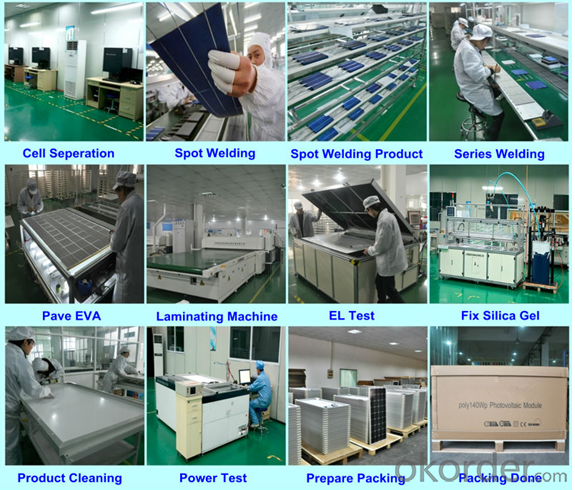
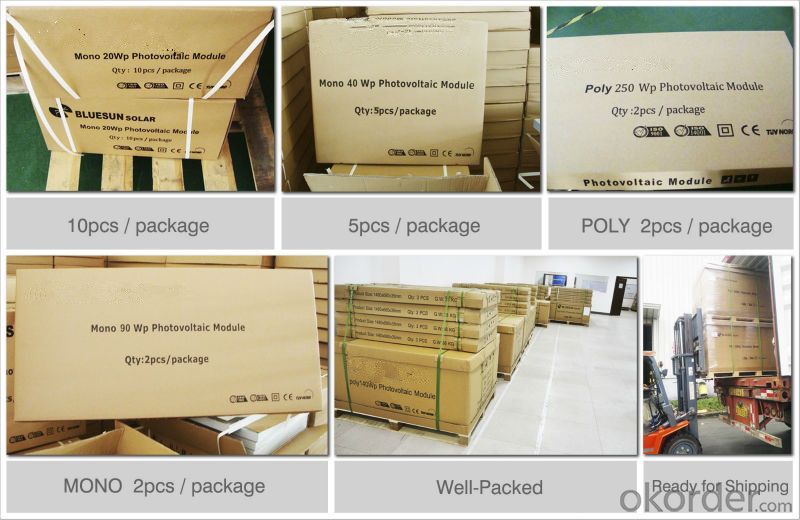
FAQ
1. What kind of Solar Cells does it have
---poly crystalline 156*156mm and 125*125mm or mono 125*125mm and 156*156mm
2. Is the front panel Glass or Plastic
---Tempered glass 3.2mm thickness or adjust to what you need, Light transmittance up to 95%.
3. Does it meet Europe Standards for Solar Energy
---This is TUV approval products, all the producing procedure apply TUV&UL.
4. What is the Efficiency level
--- Between 16-18.9% for solar cells.
5. What is the Nominal Voltage
--- 18v 20v 24v 36v 30v 48v , and so on, we can adjust to what you need.
6. What is the Warranty Period, How many years?
Power efficiency warranty:
---90% in 10 years; 80% in 25 years.
- Q: I am doing a project on solar energy at the moment and I was just wondering how.
- Sunlight okorder /
- Q: What are the benefits of using solar panels?
- There are several benefits of using solar panels. Firstly, they provide a clean and renewable source of energy, reducing the dependence on fossil fuels and decreasing carbon emissions. Solar panels also help to lower electricity bills by generating free electricity from sunlight. Additionally, they require very little maintenance and have a long lifespan, making them a cost-effective investment. Furthermore, solar panels can increase the value of a property and provide energy independence, especially in remote areas or during power outages. Overall, using solar panels promotes sustainability, saves money, and contributes to a greener environment.
- Q: Can solar panels be used for powering remote monitoring systems?
- Yes, solar panels can be effectively used for powering remote monitoring systems. Due to their ability to generate electricity from sunlight, solar panels provide a reliable and sustainable power source for remote locations where access to grid electricity may be limited or non-existent. By harnessing solar energy, these panels can provide continuous power to remote monitoring systems, enabling them to function and transmit data without the need for traditional electricity sources.
- Q: I would like to know of any construction companies, road crews, or any company that uses solar panels in the Tampa area and throws them away. I like to recycle solar panels by repairing and processing what power I can from them. Know any companies that throw out used solar panels? If so, can you provide the name and number?
- Used solar panels are usually a great bargain. Unless there is obvious major damage, you are most likely making a very safe and thrifty purchase--and if you can test the panels with a multimeter in full sunlight before purchase, you are almost guaranteed a functional panel. Nobody really knows what the lifespan of a solar panel is, since many of the very first panels are still in operation. I have three very old Arcos on my house, and they are still performing well. However, used panel prices have
- Q: How do solar panels affect the property's LEED certification?
- Solar panels can have a positive impact on a property's LEED certification as they contribute towards earning points in several categories such as Energy and Atmosphere, Sustainable Sites, and Innovation in Design. By generating renewable energy and reducing the property's carbon footprint, solar panels can help achieve higher energy efficiency, promote sustainable land use, and demonstrate innovative practices, ultimately boosting the property's LEED certification level.
- Q: i hav e a project for school we need to calculate cost to buy and install solar panels in our school
- It operates itself, except if there is a problem. It costs a lot to buy and setup. Some solar panels move to track the sun- the tracking equipment is complicated and needs maintenance. Some solar power systems have banks of batteries to store the energy- those wear out eventually. Some solar panels feed into the power grid, and there is a cost associated with managing that power- paid by the power company.
- Q: Can solar panels be installed in areas with frequent power outages?
- Yes, solar panels can be installed in areas with frequent power outages. In fact, solar panels can be a great solution to mitigate the impact of power outages as they generate electricity from sunlight, reducing reliance on the grid. Additionally, with the integration of energy storage systems, solar panels can store excess energy produced during the day and provide backup power during outages, ensuring a continuous power supply.
- Q: My husband is interested in buying solar panels for the roof and i dont know where to find them.
- The price of solar systems have dropped dramatically in the last 5 years. I would say it has reached to the point that it financially makes sense to go solar! An average home in [California] with $200 monthly electric bill would need a 7.25 kW system to offset 00% of their electric bill (means you won't have to pay anything to your utility company). Average price of the panels are anything between $2,500-3,500 per kW (after 30% Federal Tax credit which might expire at the end of 206). So, average system price will be $7,000-$25,000. If you wanna buy the system your loans monthly payments will be around $40-50 for 2 years and after that your system is paid off and you can enjoy free electricity! Total saving over 25 years can exceed $70,000. Regarding the selection of the right panels or the best company in your area, it varies case by case, city by city. Pick My Solar offers a free service to homeowners to choose the right fit for their home. It's like Expedia or Priceline for residential solar market.
- Q: Aren't batteries bad for the environment?Toxic?Expensive? With small solar panels phones, iPod's, laptops other small electronics could be smaller, slimmer, more efficient cost people less to charge every day. Maybe a small battery inside as a backup and to store the Solar energy for night time. But overall, batteries should be optional. So big question:Why aren't electronics being produced with solar panels?
- Well if these things come up with the solar panel than no one can easily but it even run it because solar panels need constant light energy from the sun which consumes in their resources equipment. By the way these are very small things we should think about big like electricity generation still done by coal which is main reason for spreading pollution but now USA is planting solar panel plant which will help to reduce pollution and saving bills money.
Send your message to us
Buy Your Own 140w/145w Solar Panels with TUV IEC MCS CEC IDCOL SONCAP Certificates
- Loading Port:
- Shanghai
- Payment Terms:
- TT OR LC
- Min Order Qty:
- 1000 watt
- Supply Capability:
- 100000000 watt/month
OKorder Service Pledge
OKorder Financial Service
Similar products
Hot products
Hot Searches
